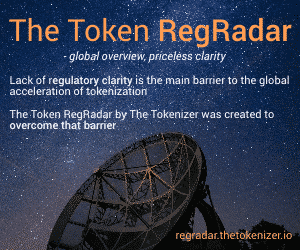New eToro Survey Finds More Than 70% of Gen Z and Millennials Fear Looming Recession
Based on a new survey from eToro, if a recession hits, Gen Z would bet on real estate, Millennials would invest in crypto, and Gen X would bank on commodities
More than half would sell stocks to purchase stakes in fractional assets ranging from equity in local businesses to slices of landmark real estate.
A new survey conducted by eToro, a global trading platform with 11 million registered users, found that more than two-thirds of US investors fear a recession is looming. Those fearing a recession want to convert part of their stock portfolios to comparatively safer investments or hedge with commodities, real estate, or crypto assets.
Survey respondents cited the ongoing trade conflict between the United States and China — as well as challenges with Mexico — as the most prevalent geopolitical factors that will impact their portfolios over the next six months.
Guy Hirsch, Managing Director of eToro U.S., said: “As global markets experience heightened volatility and as geopolitical tensions escalate, investors are seeking stability outside of the traditional stock market. Investors across all demographics are looking to empower themselves financially by diversifying their portfolio with new asset classes and exploring novel forms of ownership.”
Preferred safe-haven assets differ across generations
While fears extend across age groups and demographics, the survey of 1,000 US online investors found that each generation of Americans has already formed distinct preferences when it comes to sheltering wealth in the event of a recession. Generation X, born between 1965 and 1979, showed a preference for commodities, with 38% indicating that they would turn to them in the event of a recession. 40% of Millennials, or those born between 1980 and 1994, declared that they would prefer to invest in crypto assets. 50% of Generation Z respondents –– defined as those born in 1995 or later –– would opt to invest in real estate.
Interest in fractional ownership and new asset classes
The investors most concerned about an impending recession expressed an eagerness for new opportunities with high liquidity. 92% of this group said they were “very interested” in owning fractions of assets such as famous artworks, landmark buildings, private startups, or other categories of investments.
Among all respondents, local businesses offered a particularly attractive entry into fractional ownership. More than 80% of all respondents expressed interest in owning this type of asset. Meanwhile, 82% of respondents would like to own a portion of landmark real estate, and 68% would purchase shares of music rights. More than half (55%) of surveyed investors indicated that they would sell a portion of their stock portfolio to fund their investment in fractional ownership of these new types of assets.
Hirsch continued: “We believe that if a recession were to occur, we’d see shrinking stock portfolios and growth in other asset classes like crypto, as well as new fractional ownership models. Historically, these investment opportunities have been limited to high net worth and institutional investors, but innovation is unlocking these opportunities for everyday investors and clearly, these results indicate that the demand is there.”
Greater transferability expanded trading hours would increase investment
Investors also indicated transferability of assets as a major pain point. More than half of respondents noted that it is difficult to transfer financial assets to another person. Half of the millennials said that they would trade more often if it were easier; 61% of Generation Z agreed.
Hirsch concluded: “Investors want more freedom, especially in the face of economic headwinds and changing market dynamics. They’re unhappy with the financial status quo. If you grew up in the internet age, you expect more. As wealth is transferred to the next generation, and new technologies like tokenization make financial assets more transferable and accessible, we believe that younger investors will become more engaged.”
Survey respondents believed that increased access and transferability of assets would encourage them to invest more. An overwhelming majority (75%) of respondents indicated that they would invest more if trading extended beyond the traditional 9:30 a.m. to 4 p.m. window. This sentiment was felt particularly strongly among investors who fear market volatility: 78% of this group want to trade stocks past market hours.
About the Survey from eToro
eToro commissioned Provoke Insights, an independent market research and strategy firm, to conduct an online survey from July 18 to July 31, 2019, among 1,000 U.S. online investors. The respondents were qualified to complete the survey if they met the following standards:
- Aged between 20 and 65 years old
- Self-declared that they trade online and that they currently or plan to invest in stocks, cryptocurrency, or ETFs within the next 6 months.
The responding sample matched the U.S. Census for geographic diversity and by age (20-65) in order to represent an accurate depiction of the online trading community.
Photo by Julián Gentilezza on Unsplash
More Article:
You Might also Like
























